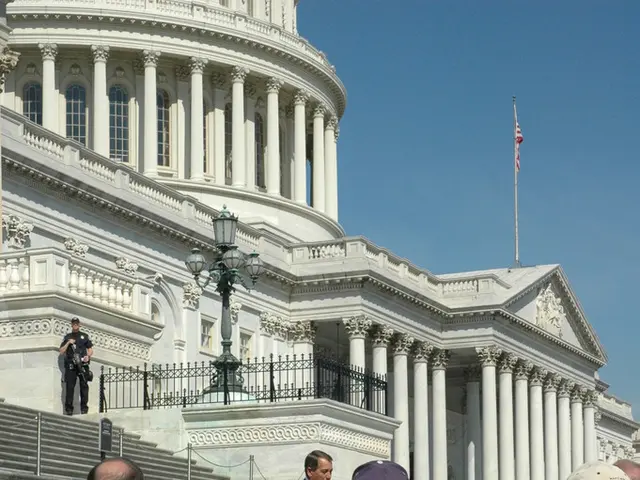Did Trump promise to end inflation in 2024? Can a president actually end inflation?
US Election Fact Check during the United States Election
In a post on Truth Social on October 30, 2024, Donald Trump claimed he would end inflation if re-elected as the next American president: "I will end the inflation […]." But can a single individual really end inflation in a complex economy such as the United States? Let's dive into the details and see what role a president like Donald Trump might play:
What fuels inflation?
Inflation is generally driven by a variety of factors, including:- Demand and supply imbalances: too much money chasing too few goods or services- Rising production costs: e.g., energy, labor, or material prices- Expansionary fiscal and monetary policies: government spending, deficits, and low interest rates- World events: pandemics, wars, or natural disasters disrupting supply chains
How much power does a president really have over inflation?
A president can impact inflation through:- Fiscal policy (taxes, spending, borrowing)- Appointing key officials (e.g., the Federal Reserve Chair, although the Fed is independent)- Trade and regulatory policies (tariffs, deregulation, etc.)
However, direct control is limited:- The Federal Reserve, the U.S. central bank, primarily manages inflation via monetary policy (interest rates and money supply)- Congress holds significant authority over spending and taxation- External factors like global markets are beyond any president's control
Could Trump's policies truly reduce inflation?
His policies as president (2017–2021) included:- Tax cuts: potentially stimulating demand and, in some cases, inflation- Tariffs and trade wars: temporarily raising prices- Deregulation: potentially reducing costs for businesses, easing price pressures
However, results are mixed:- Tax cuts and economic growth: can boost demand, sometimes making inflation worse if supply doesn’t keep pace- Trade policies: often increase consumer prices (e.g., tariffs on imported goods)- Long-term effects: often depend on broader economic conditions and global events
The Final Word
No president can single-handedly guarantee an end to inflation, but they can influence it through policies and appointments.Economic stability demands coordinated action across many institutions—and it's never guaranteed to be "solved" by one person or policy.
In short:A president like Donald Trump can make choices that affect inflation, but cannot "end" it alone. Inflation is a multifaceted issue that requires shared effort from multiple institutions and is never guaranteed to be completely "solved" by one individual or policy.
- Science has highlighted various medical conditions and chronic diseases, such as type-2 diabetes and respiratory conditions, that are linked to poor digestive health and sleep patterns.
- Fitness and exercise, a key component of workplace wellness, can help manage many health-related risks, including heart disease and sleep disorders.
- Eye health, hearing, and skin care are crucial aspects of personal health, often affecting our productivity and quality of life as we age.
- Aging can lead to changes in both men's and women's health, including menopause for women, autoimmune disorders, and skin conditions like psoriasis.
- Mental health is another critical area of focus, with conditions like depression and anxiety common in various demographics, including families, seniors, and those dealing with weight management issues.
- Environmental science plays a crucial role in understanding and addressing the health risks related to climate change, including air and water pollution and its impact on overall health and wellness.
- In the realm of education and self-development, personal growth is essential for career development, policy and legislation, job search, and general news consumption, enhancing mental acuity and individual responsibility.
- Skills training is vital in the current job market, ensuring that people are equipped with the latest tools for crime and justice, as well as for success in their chosen careers.
- Learning and adaptability are essential in today's dynamic environment, especially in the face of war and conflicts, which can lead to displacement and increased mental health concerns.
- When it comes to the healthcare system, policies and legislation often impact access to therapies and treatments, especially for those dealing with chronic diseases or rare medical conditions such as hearing impairment or autoimmune disorders.
- Nutrition and healthy diets play a crucial role in eye and skin health, as well as in managing conditions like type-2 diabetes, digestive health, and mental and immune function.
- Medicare, the federal health insurance program for seniors, plays a role in the treatment and management of various health concerns, including chronic conditions like diabetes and respiratory issues.
- CBD, a compound found in cannabis plants, has been marketed as a treatment for various health concerns, including anxiety, chronic pain, and skin conditions like eczema and psoriasis.
- Parenting can sometimes lead to alterations in a person's sleep patterns, as well as changes in physical health due to stress and lack of self-care.
- In the realm of sexual health, education and open dialogue are essential to prevent diseases like HIV and promote reproductive health.
- Climate change can exacerbate existing health concerns, especially for vulnerable populations, such as those with chronic respiratory conditions or allergies.
- The proper management of stress, anxiety, and mental health concerns is essential in promoting overall wellness and ensuring productivity in the workplace.
- Emotional support and counseling can be helpful in addressing mental health concerns, whether they stem from war and conflicts, personal relationships, or work-related stress.
- Policy makers and legislators can resources to allocate funding for research into new therapies and treatments, as well as education and self-development initiatives.
- Leadership and policy decisions in areas like environmental protection, healthcare, and education can have deep and long-lasting effects on the health and wellness of communities and nations.
- In a holistic approach to health and wellness, one must consider not only medical conditions and treatments but also the importance of nutrition, exercise, mental health, and personal growth for a truly balanced life.








